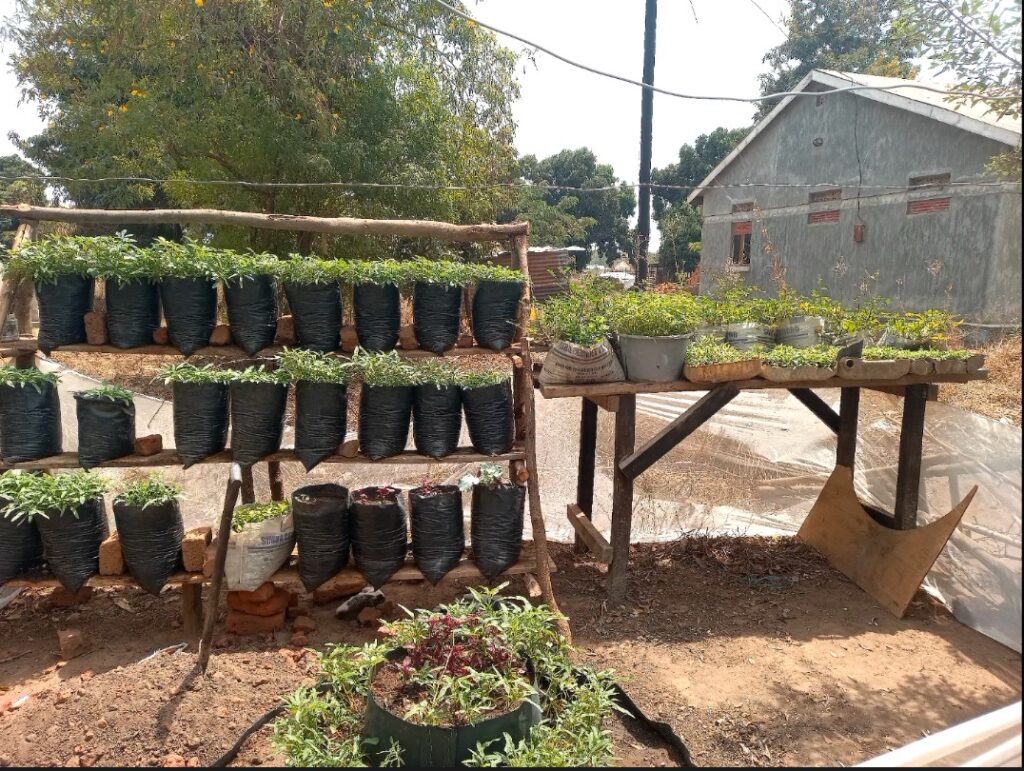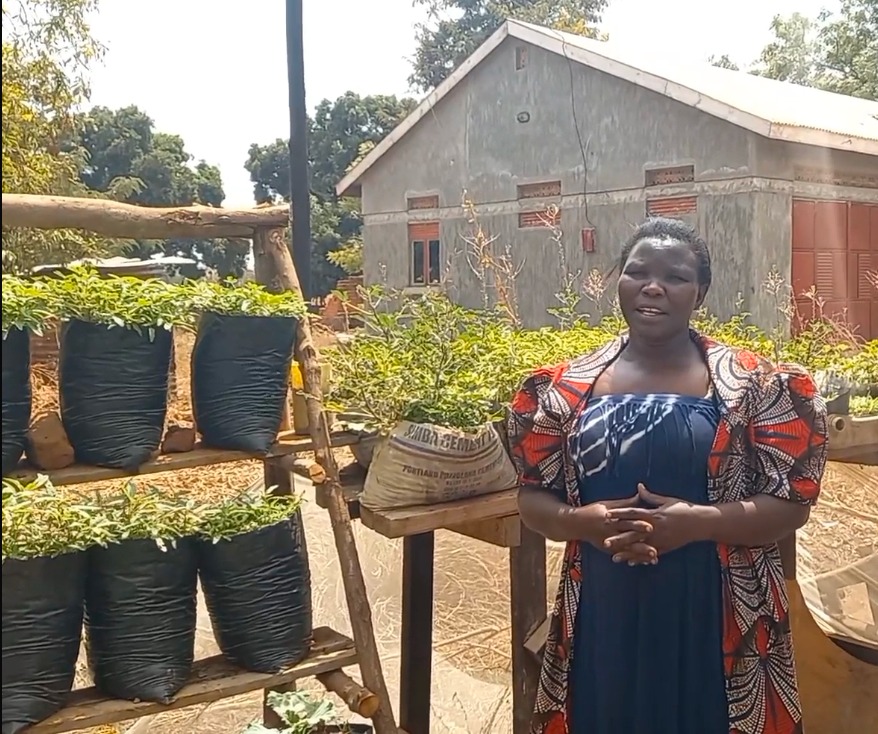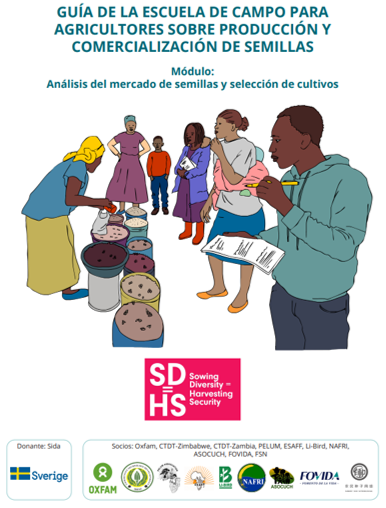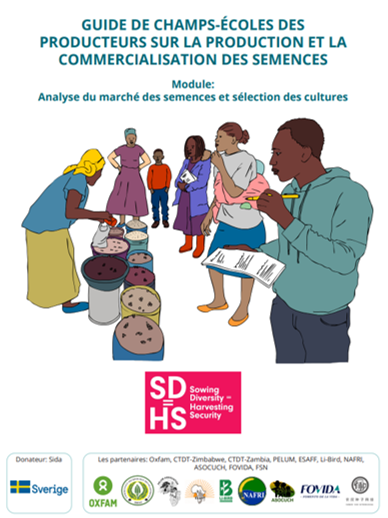Local food plants can support a community in difficult times, especially when dealing with erratic climate patterns or in the face of a pandemic. Through Farmer Field Schools (FFS), SD=HS promotes local food plant management to guarantee smallholder farmers’ food and nutrition security.
One of SD=HS’ focus is on local food plant for nutrition. Local food plants can contribute to reducing and even ending food scarcity periods by adding nutritional value to diets throughout the year. We visited Margaret Masudio from Pakele sub-county, Adjumani district, Uganda. Her story captures the central role of women in all building resilience with local plants: innovating, sharing traditional knowledge and combining it with new knowledge from the FFS. But also working with others, training more people, and sharing the benefits.
Margaret told us about the effect of climate change, with unreliable rainfall and a lengthy dry period extending over five months. Combining her understanding of local food plants and her experience as a facilitator in the FFS, she asked herself: “Why don’t we try other means of surviving this dry spell?”
The facilitator collected local plants and created what looks like an oasis against the dry landscape surrounding her. Among others, she presented the spider plant, which is wild and grows abundantly during the rainy season. She learned to domesticate the plant, brought the seeds home and now grows it during the dry season as well. Margaret’s community has shown great interest in having the spider plant available throughout the year. Indeed, local food plants can contribute to reducing and even ending food scarcity periods by adding nutritional value to diets throughout the year. For this, the FFS always takes the community’s knowledge as the starting point, as they know most about minor crops, semi-domesticated and wild plants.

Margaret also showed us how she plans to save seeds from other local food plants, they will go into the Community Seed Bank. If there is great interest, originating from a FFS experiment for example, the community must make sure they save and store enough seeds to make the plants accessible to everyone. Pointing to a variety of Amaranth, Margaret clarified it was first bought from input dealers and she continued to plant it. In addition to feasting on these local food plants, she explained that many of them are used by the community to treat certain aches.
In looking to bridge the drought period, when people go hungry and may have lower immunity, reviving local food plants is logical. Many of these plants were known and used by the previous generations but have been ignored or even forgotten today. As Margaret shared, these plants have a bitter taste and must be cooked in certain ways. “When cooking, it needs enough paste, like peanut paste…that is what our grandmothers used to cook!” Unfortunately, she told us her community abandoned some of these plants. The expertise on how to plant, use and prepare these resources is very precious. It is often elderly people and women who hold the knowledge and recipes to make children eat those bitter plants. Read this story on a cooking demonstration by another Uganda community, as part of the FFS activities to improve the taste of local food plant.
When reflecting that she could make a profit with her seeds and local food plants during the dry period, she chose to make them available to the families for free. Margaret is a leader in her community, she innovates and shares her knowledge to empower other women. “I have already trained 20 women within our community. One woman was so excited, she said: Margaret, this thing is what I have been longing for!”
This story confirms that FFs on local plants for nutrition are responding to needs and applied to increase resilience. Read more on our local food plants for nutrition work.
Margaret is an inspirational example of facilitator and leader in her community. We testify many such leaders, across geographies in Zambia, Zimbabwe, Nepal, Laos, China, Guatemala, and Peru. In the spirit of Women’s Day, on 8th of March, and throughout the month, we will share inspiring stories that strive towards gender equality.









